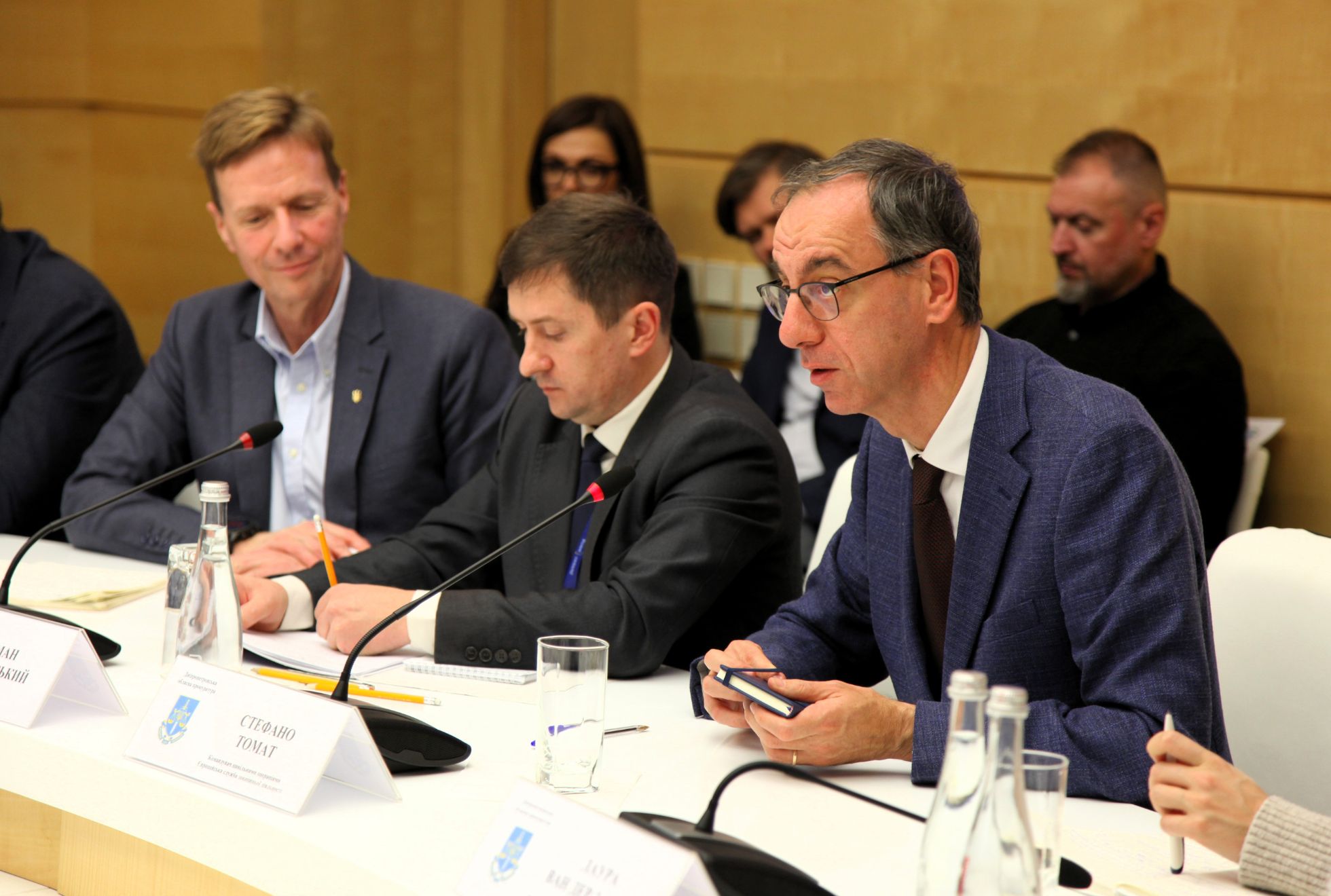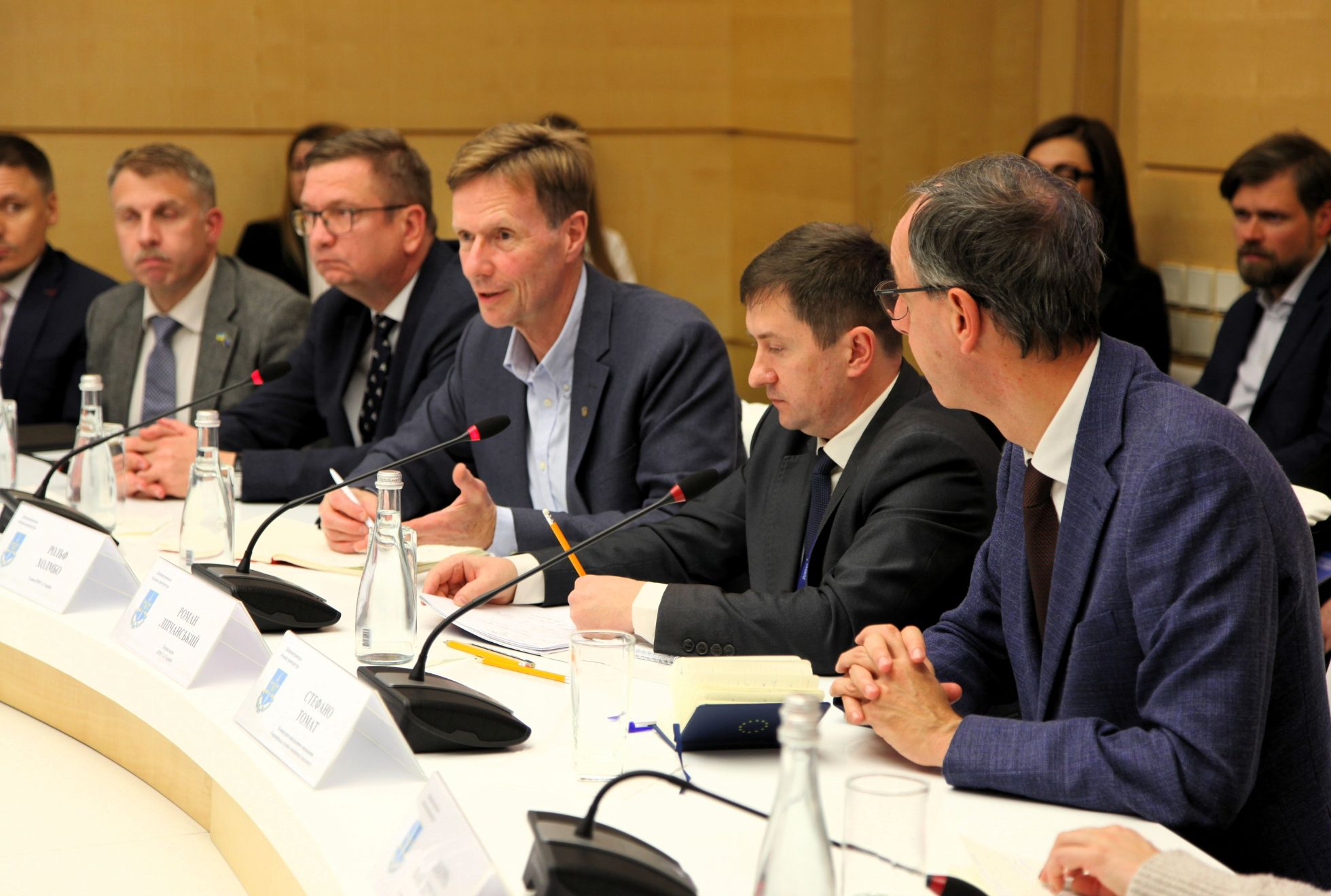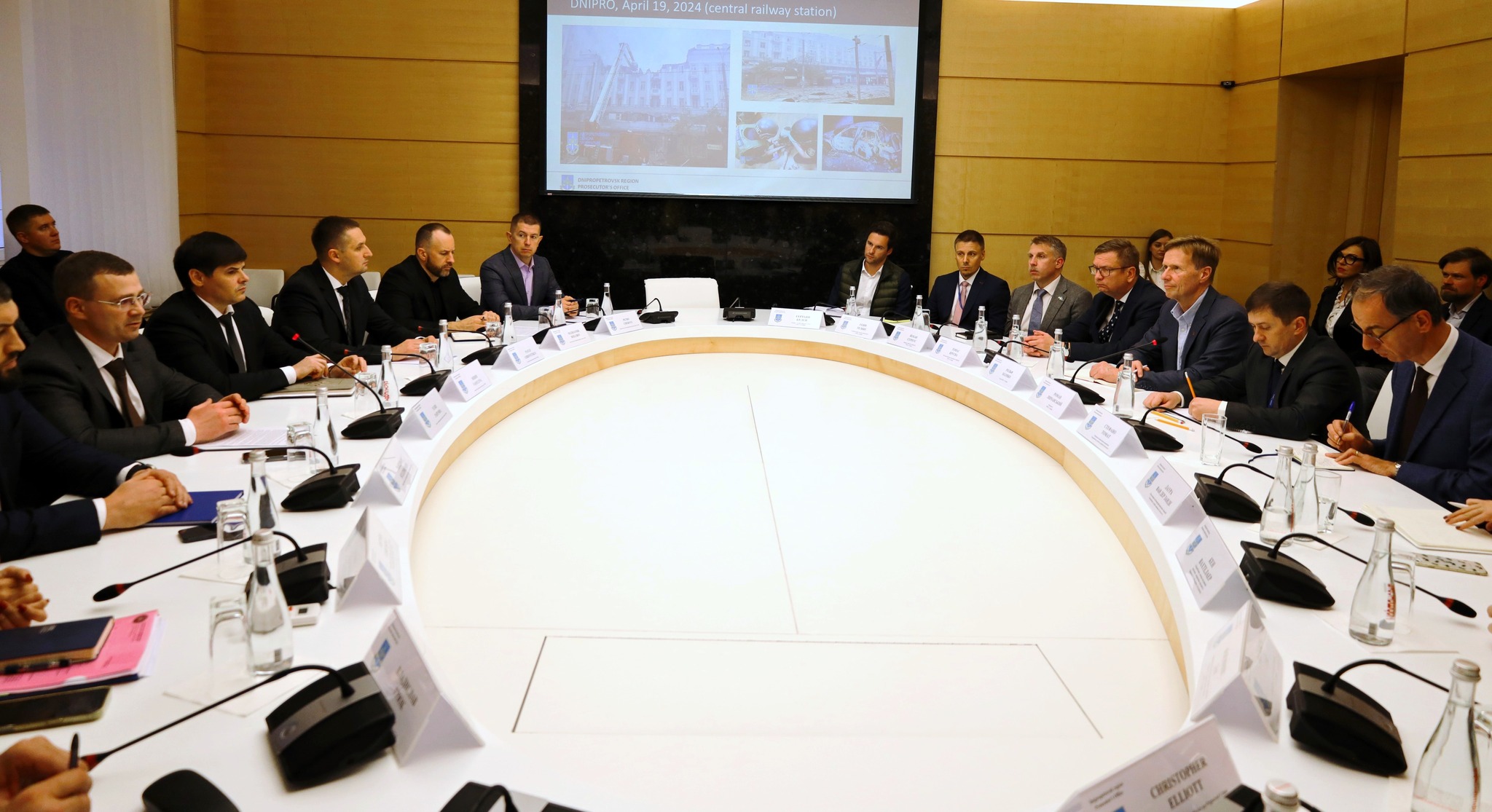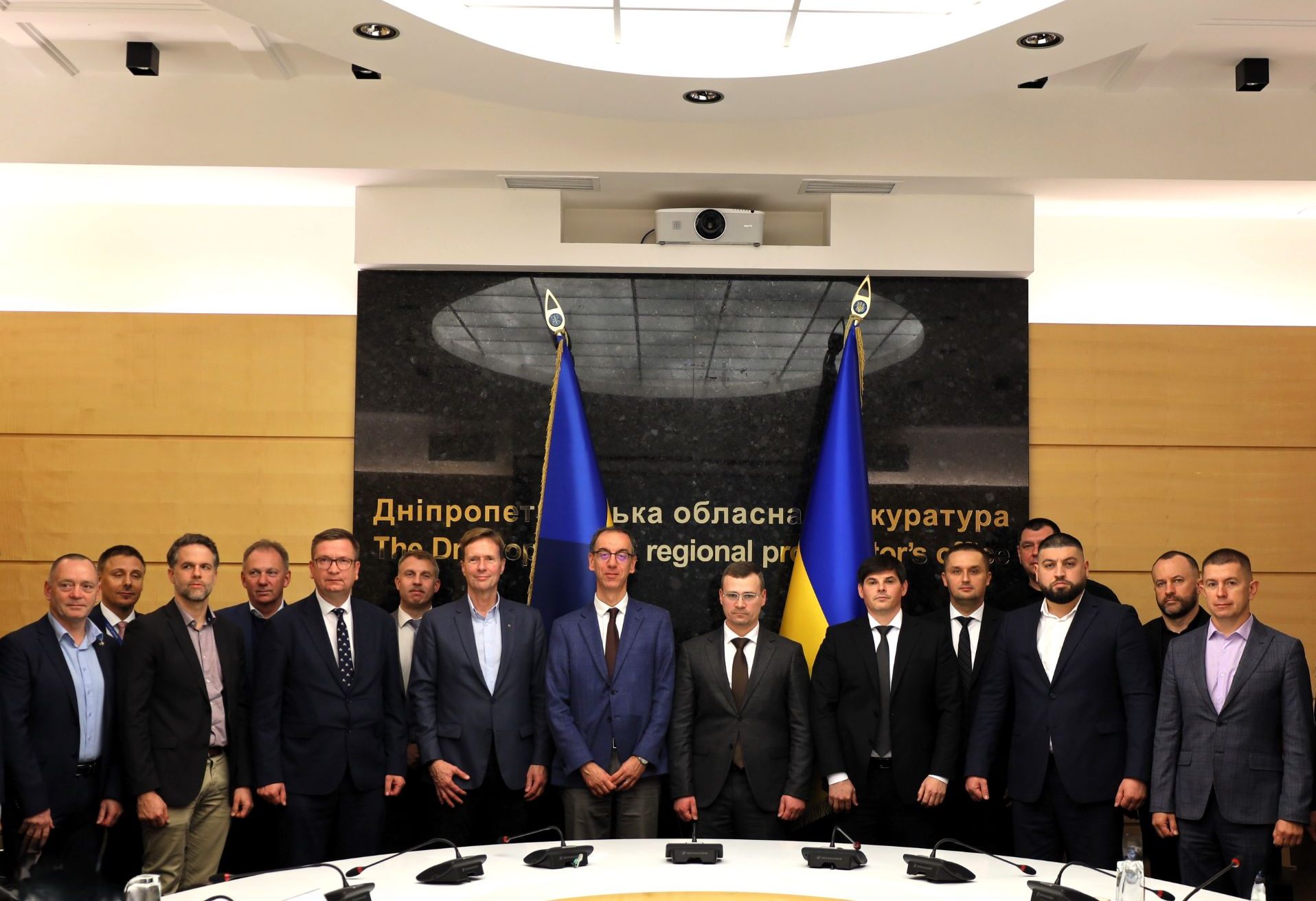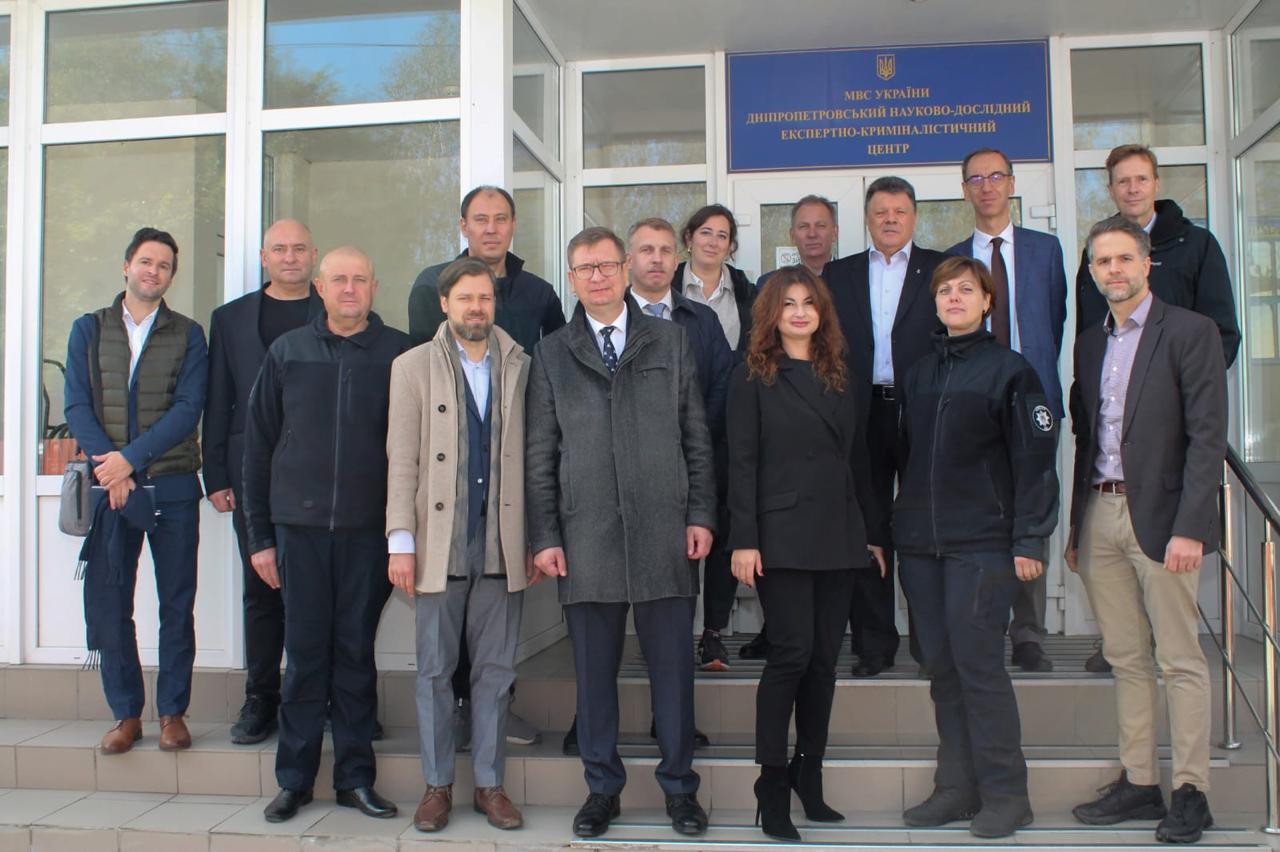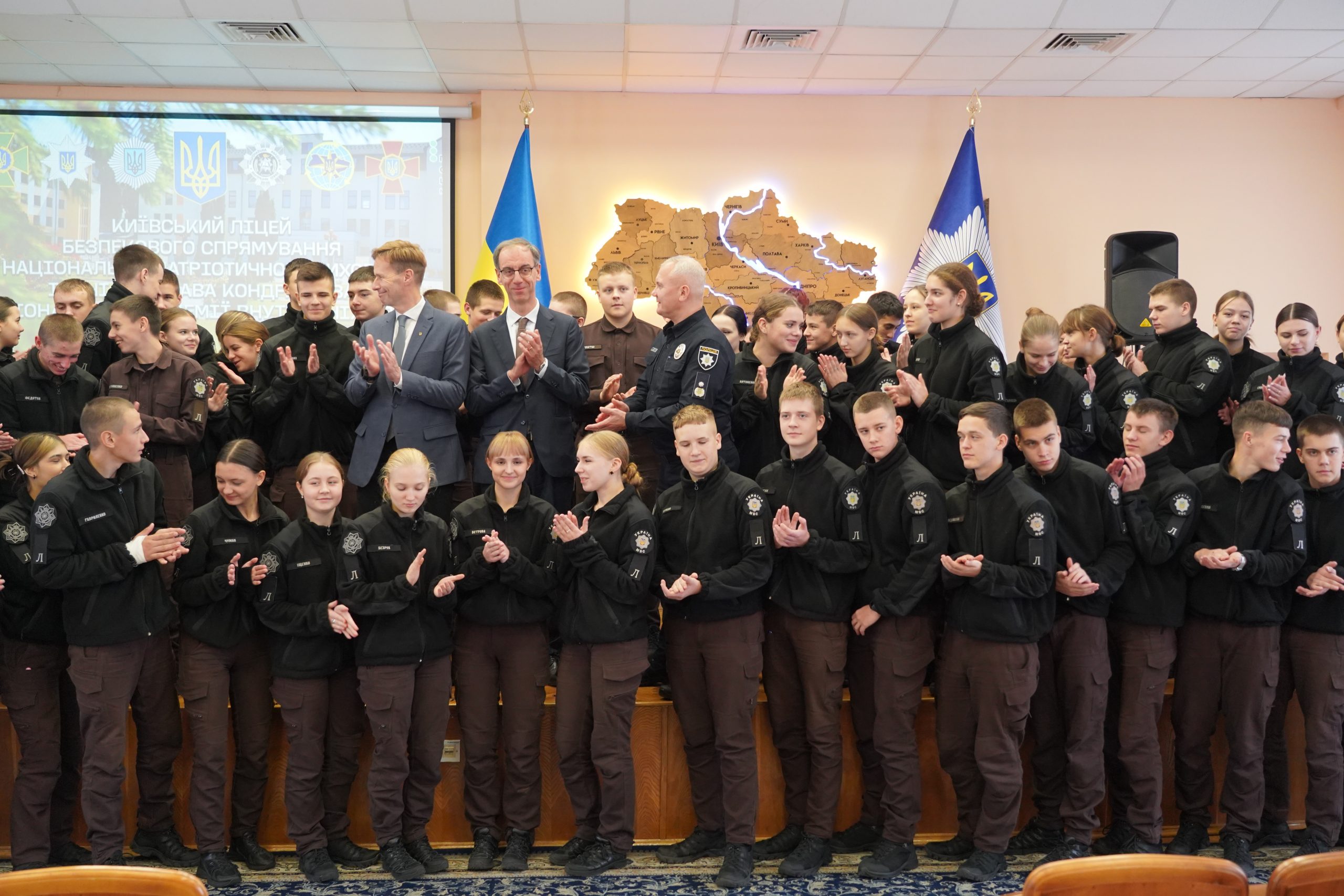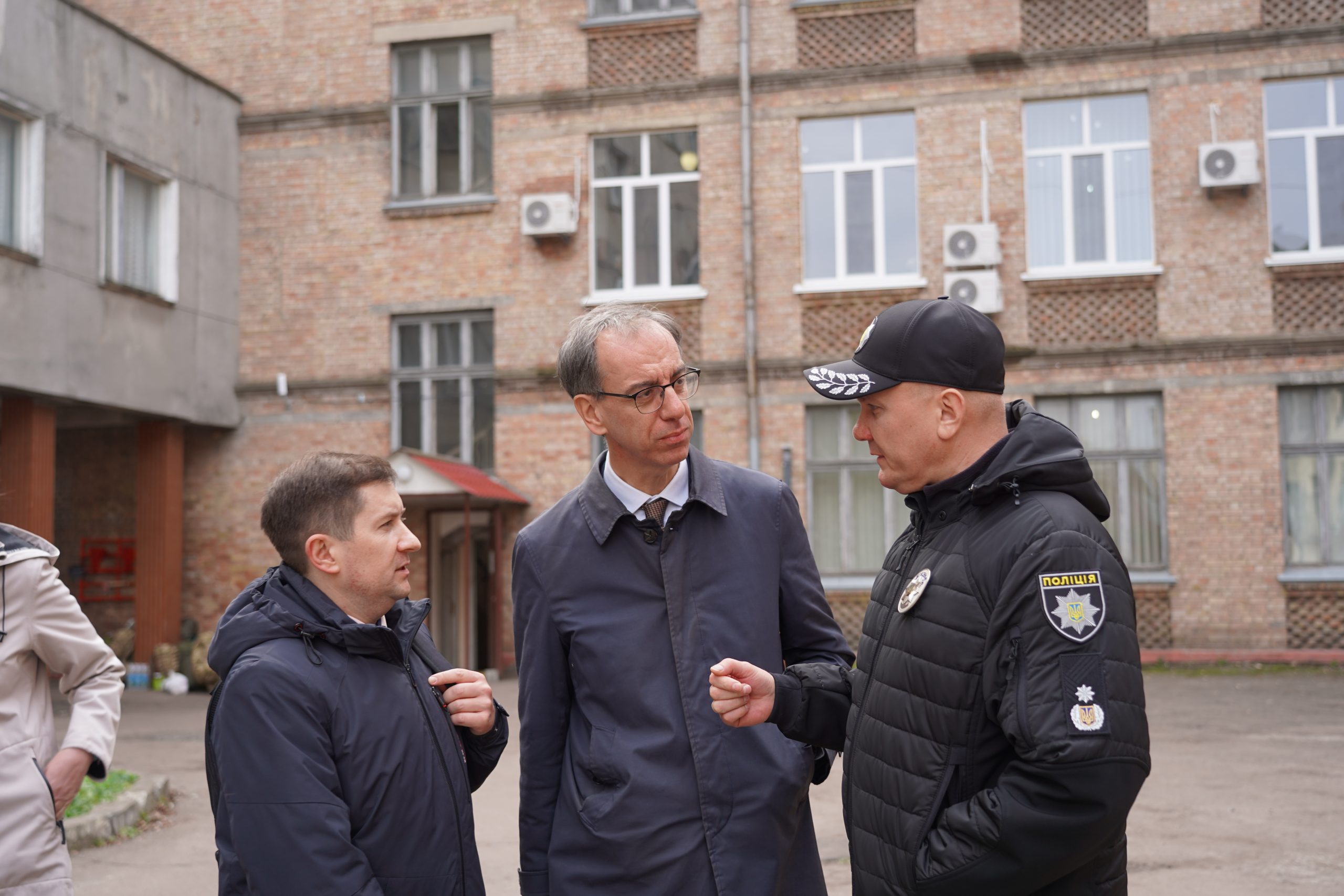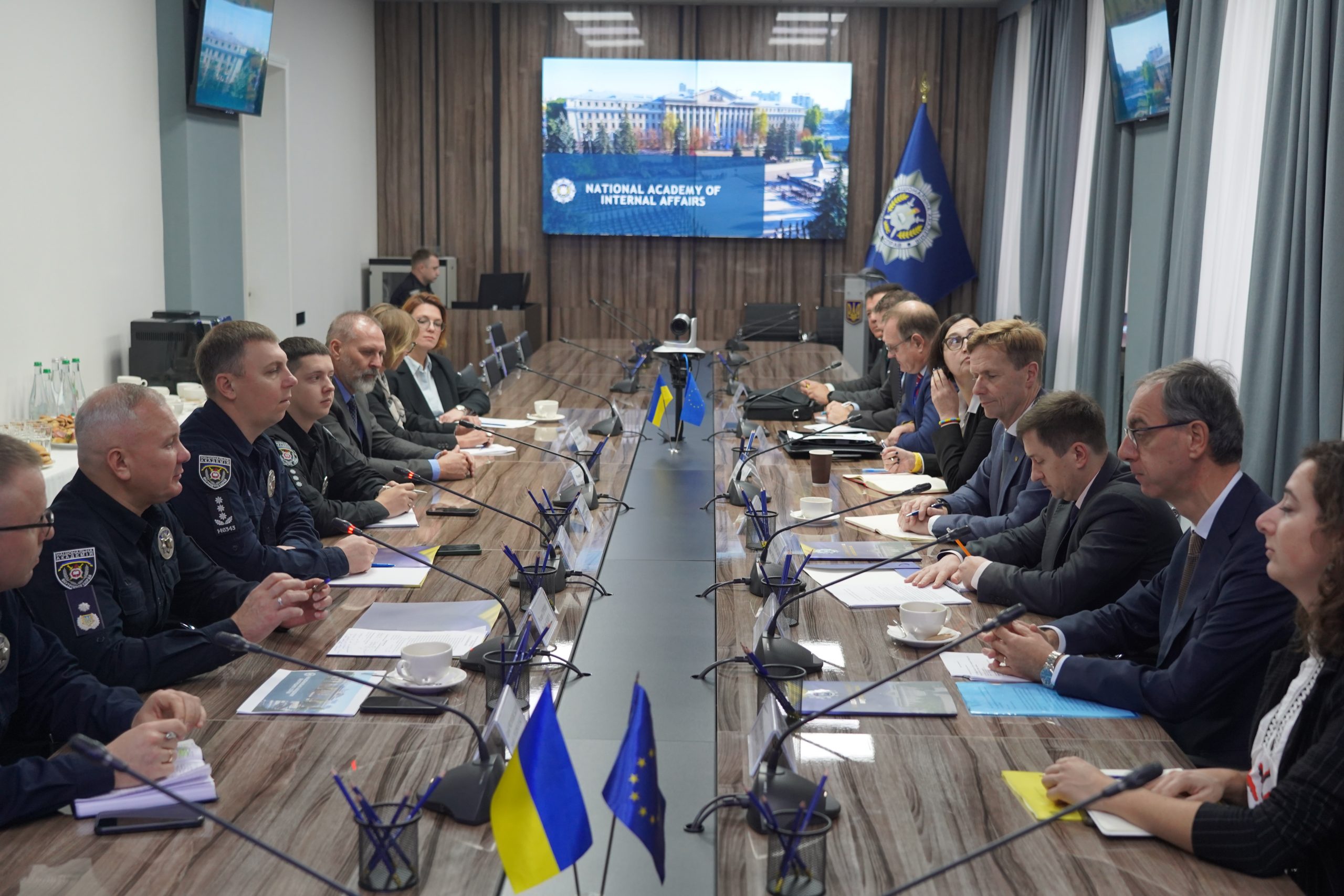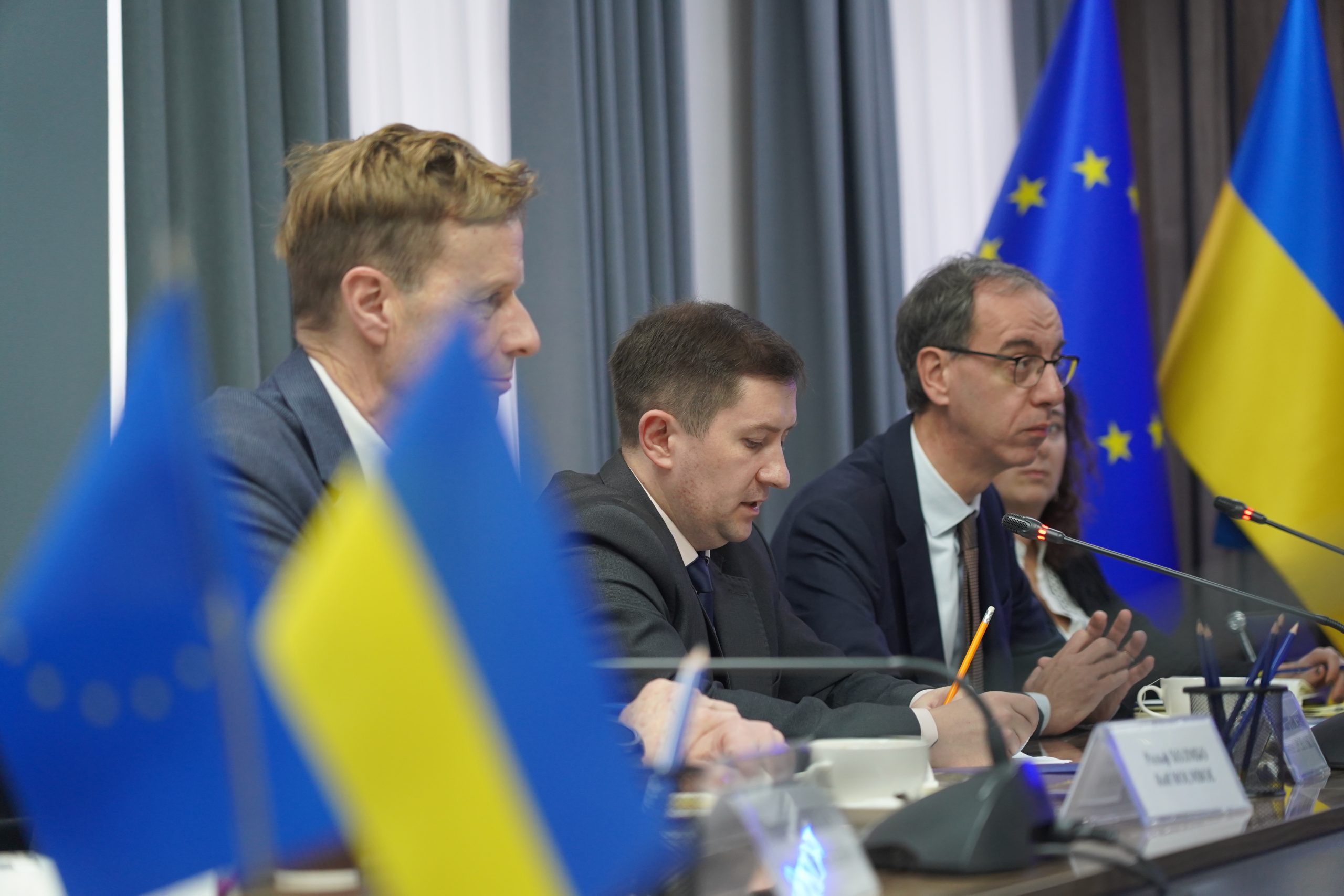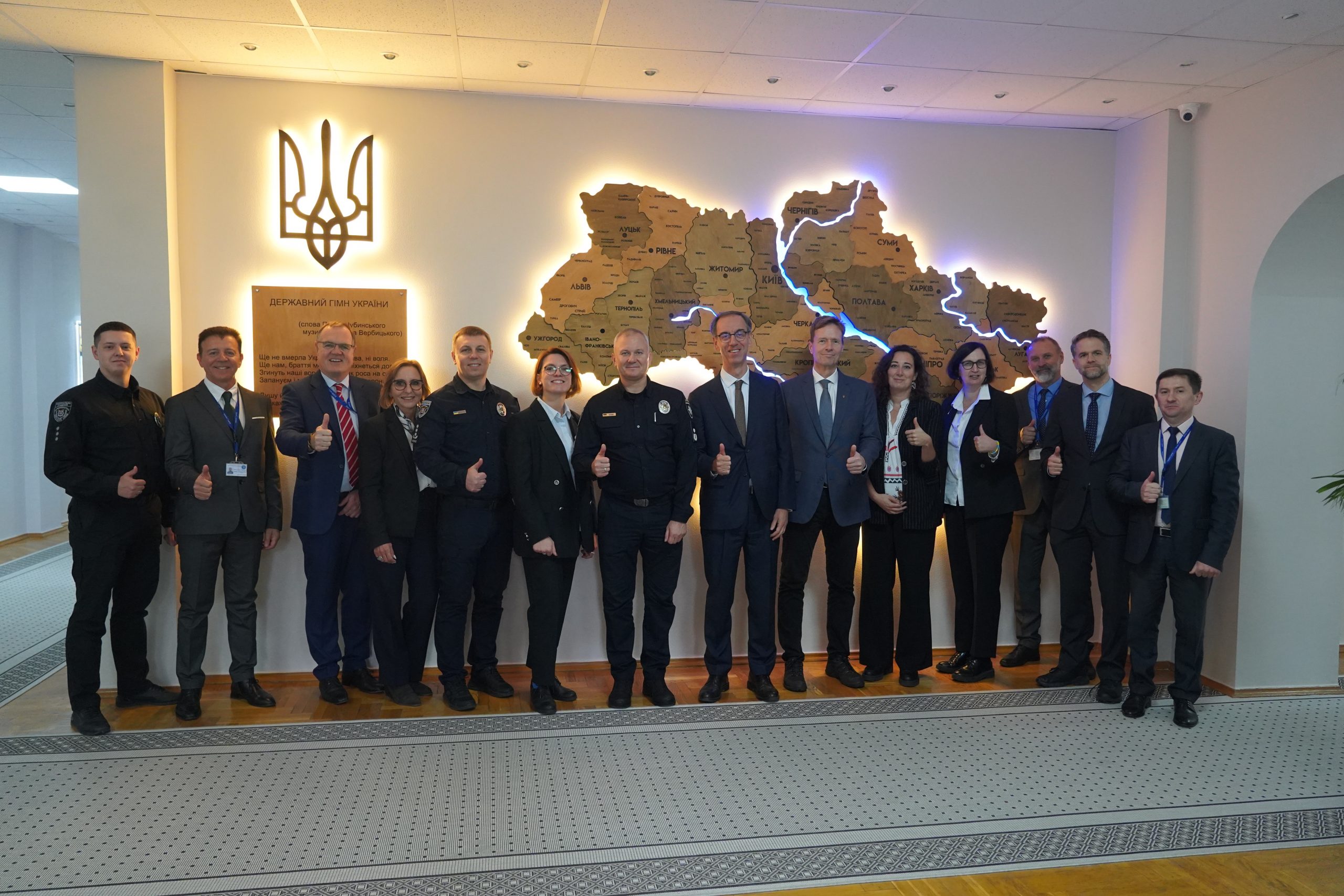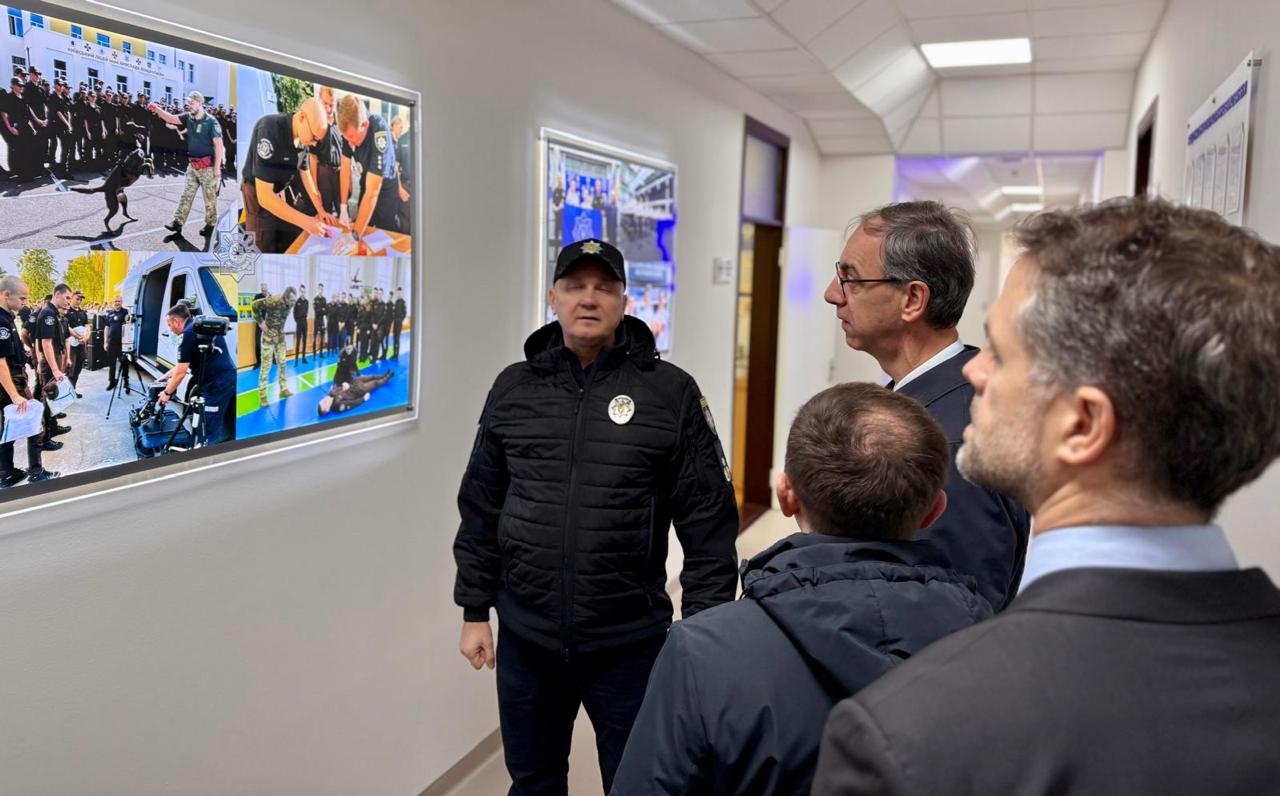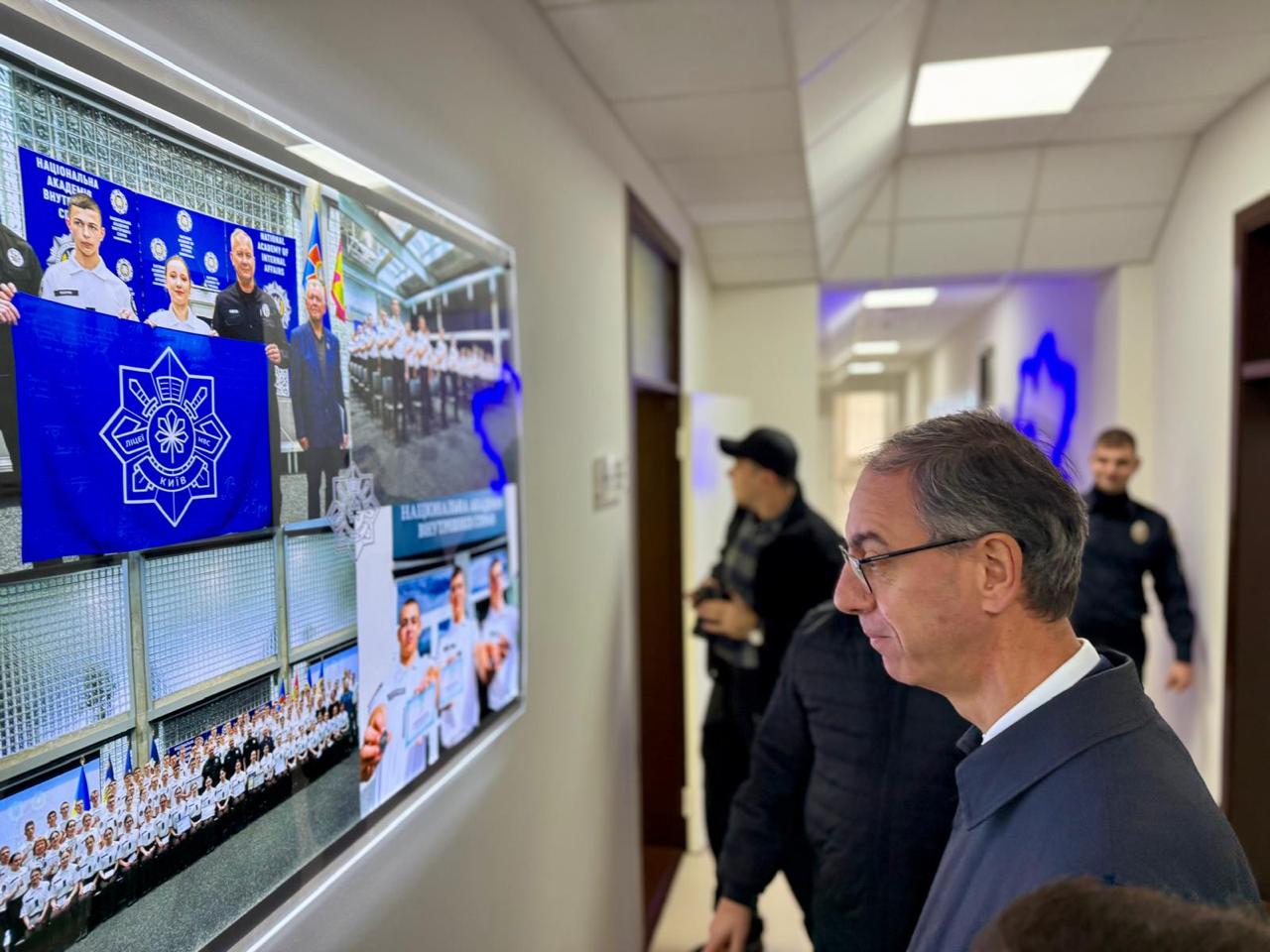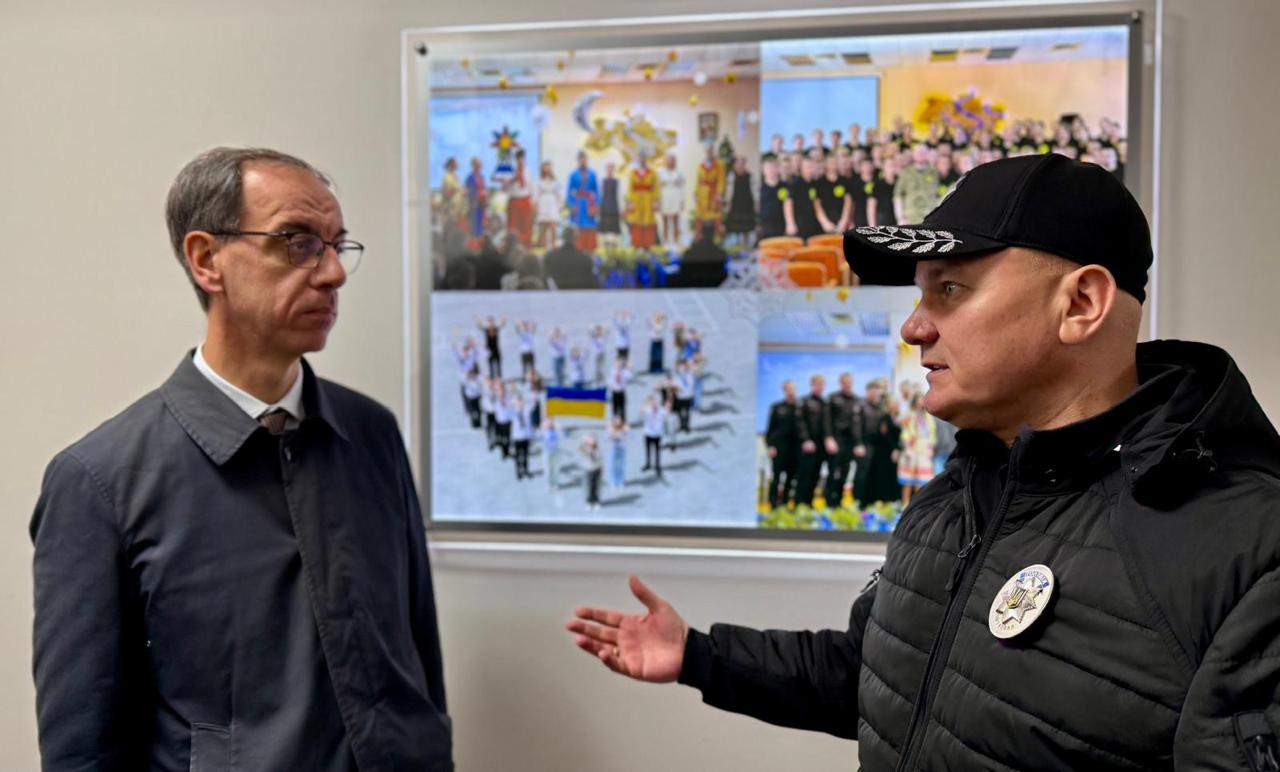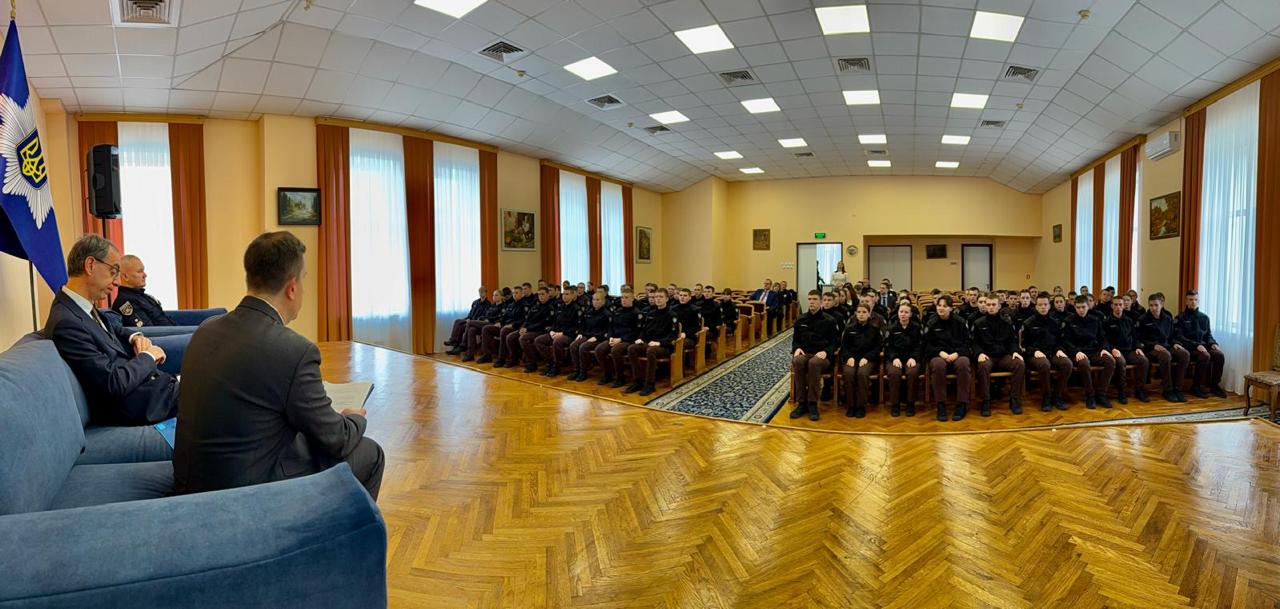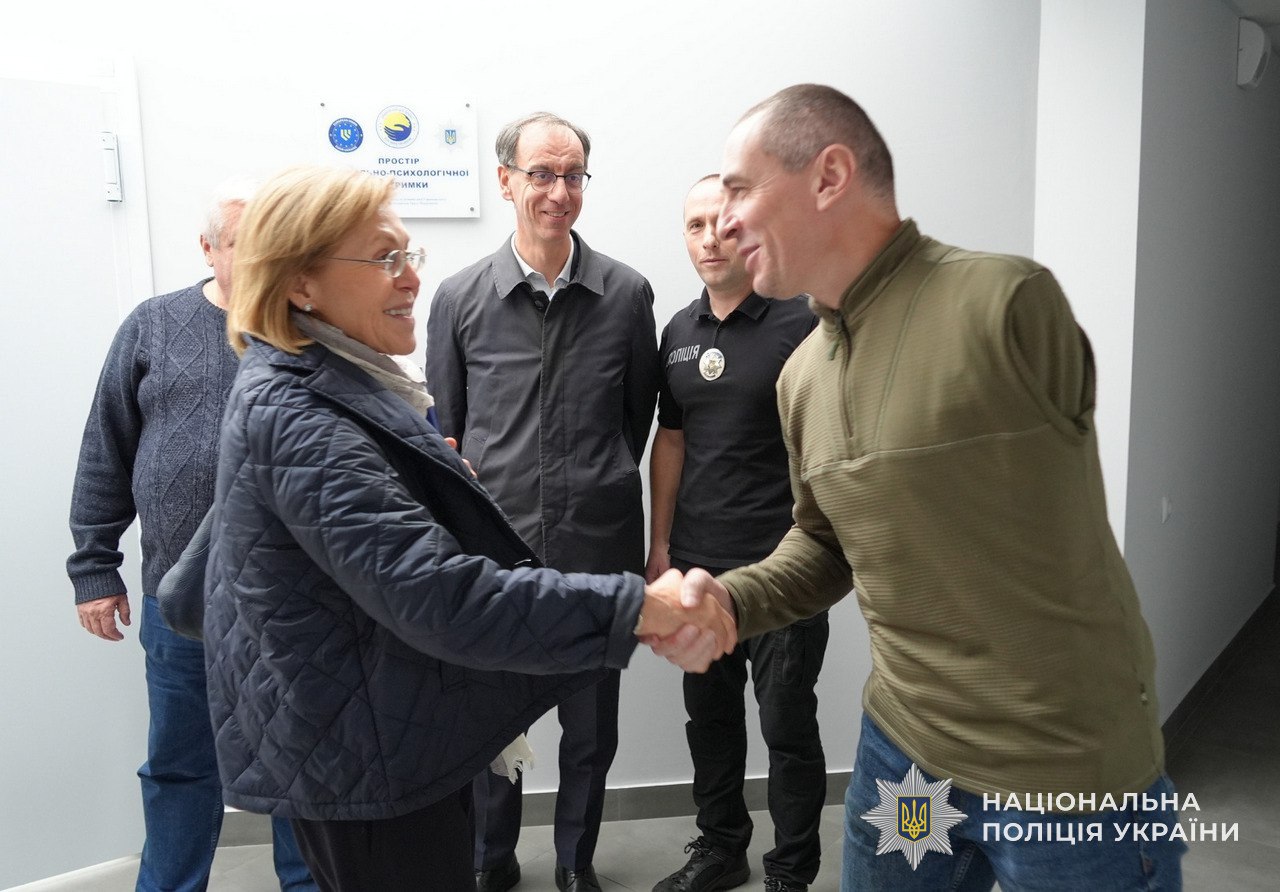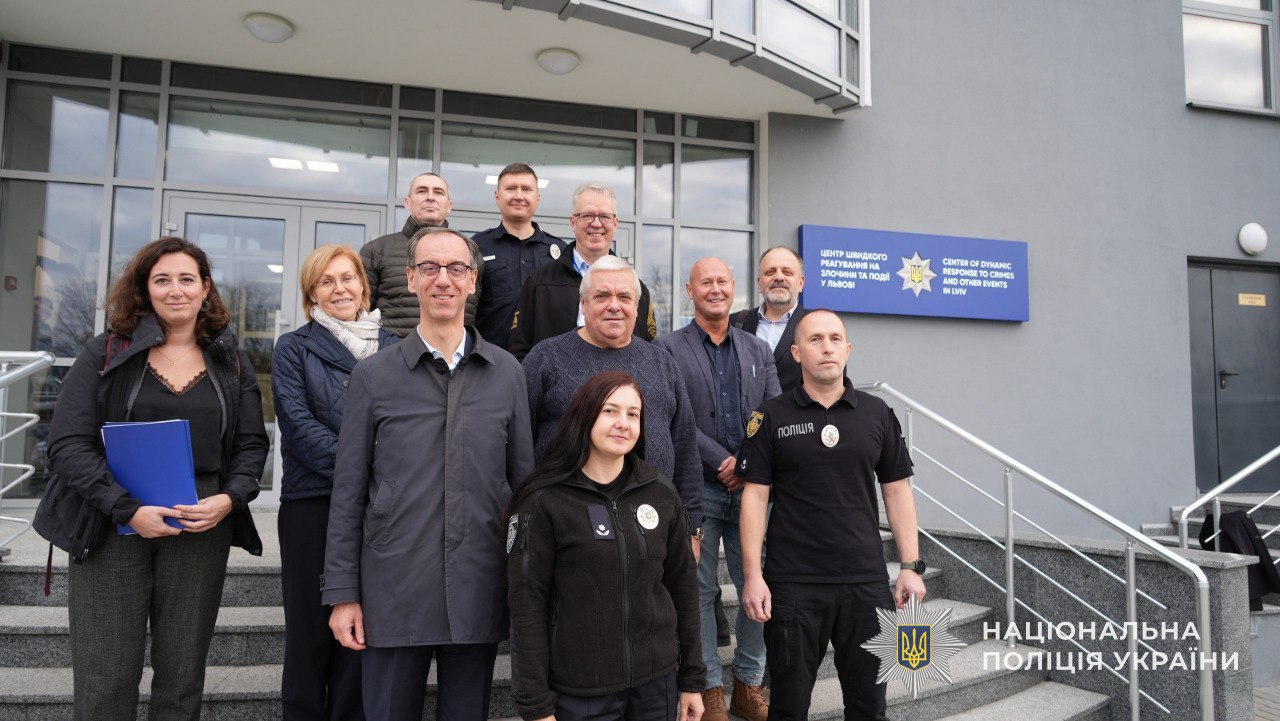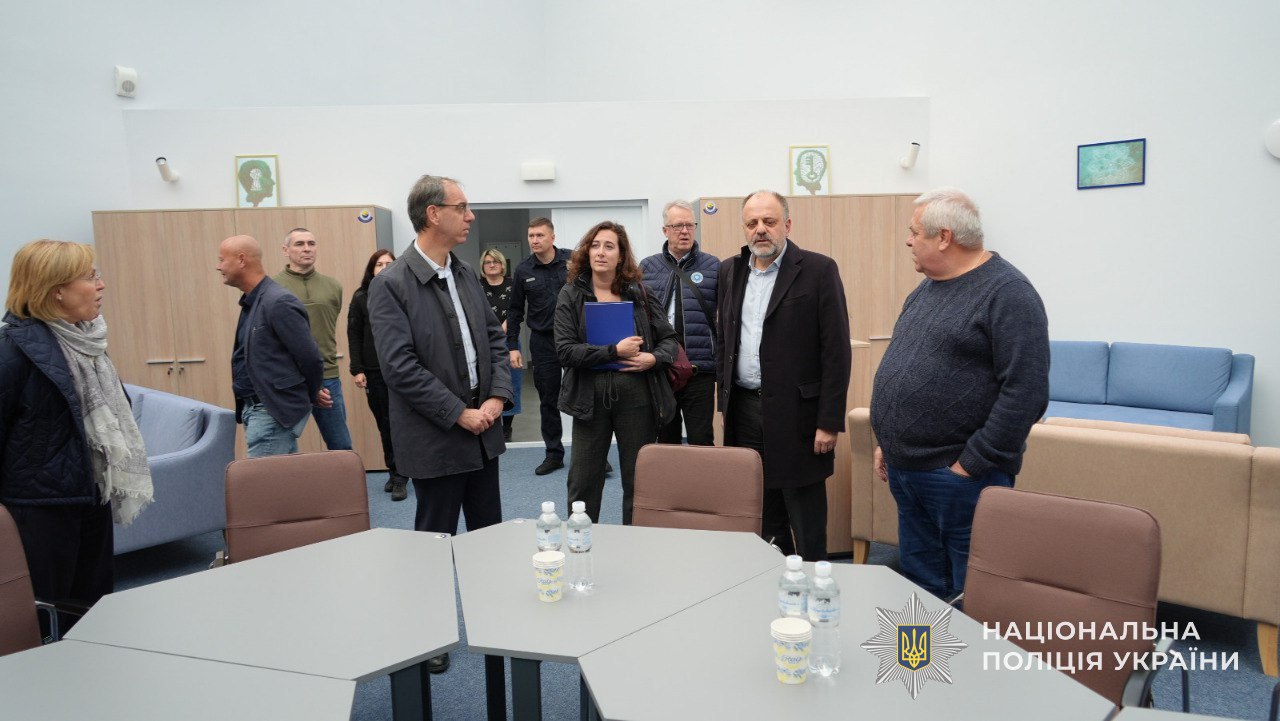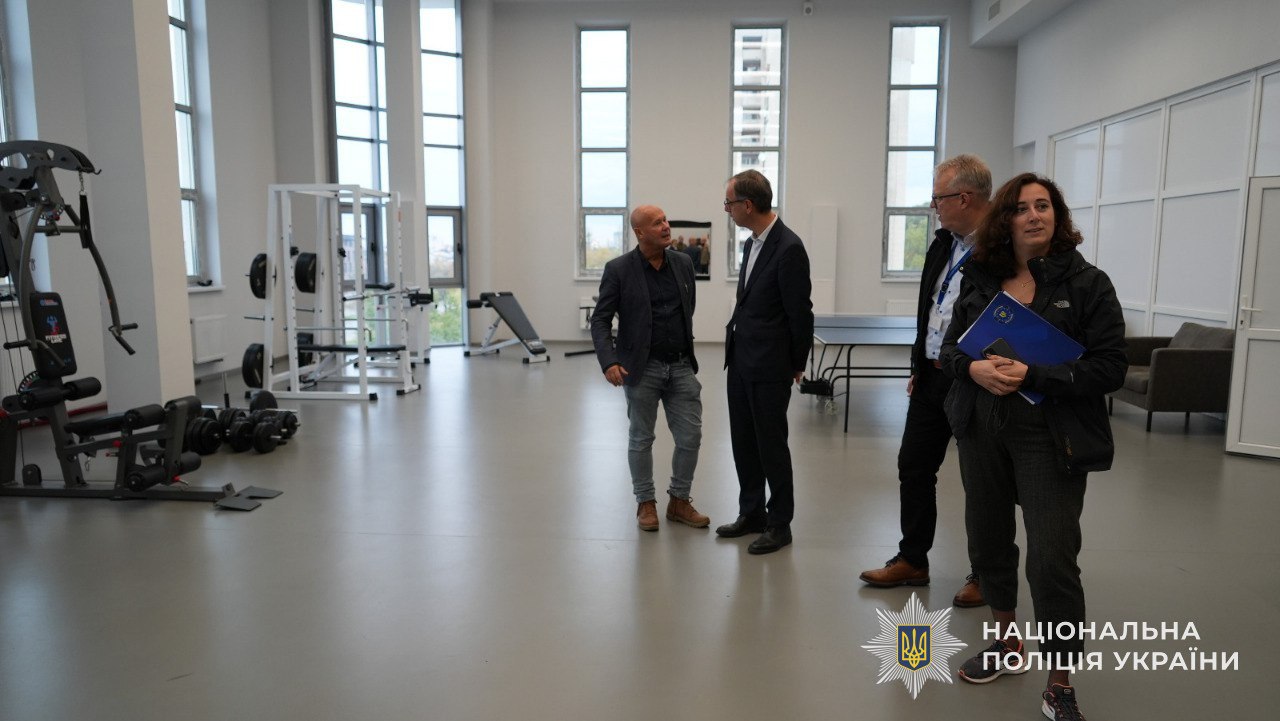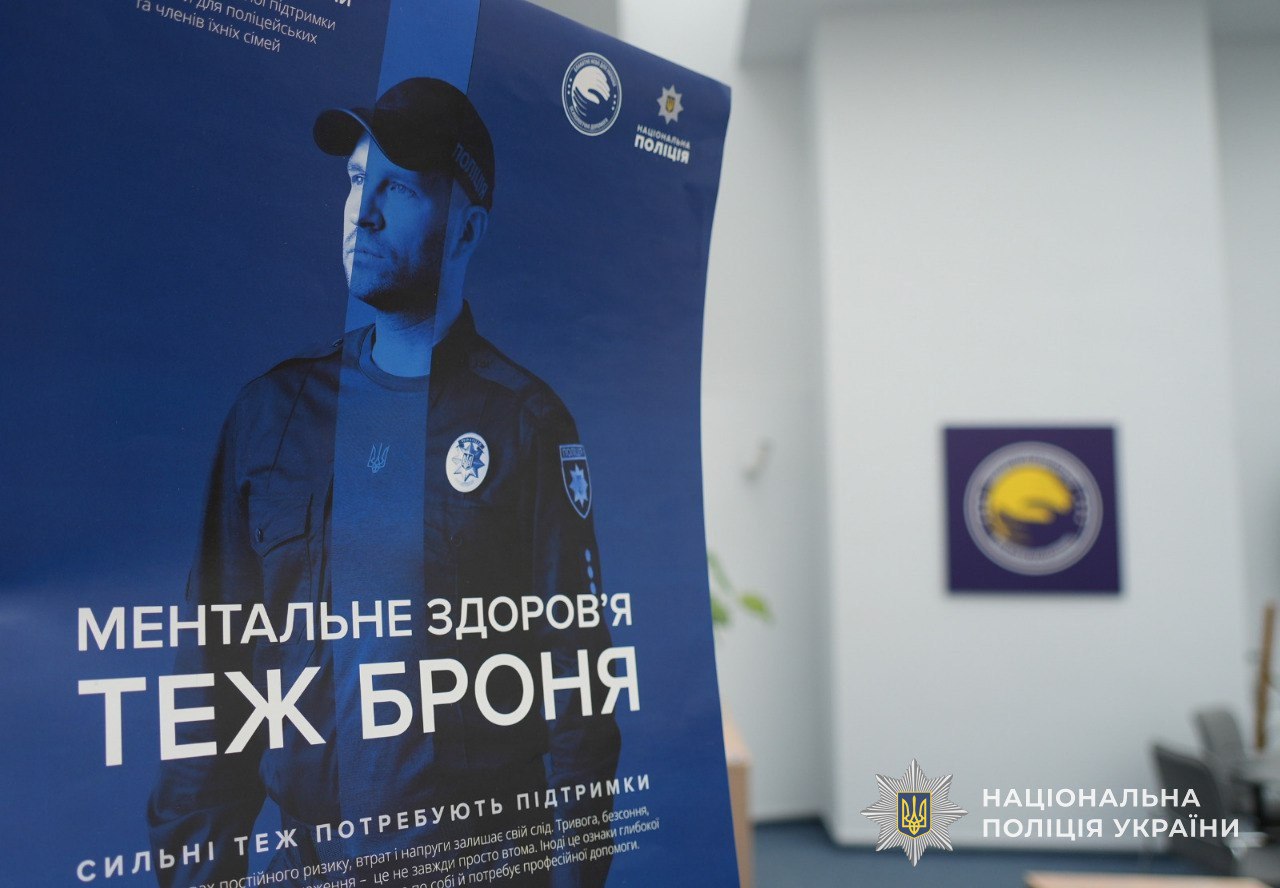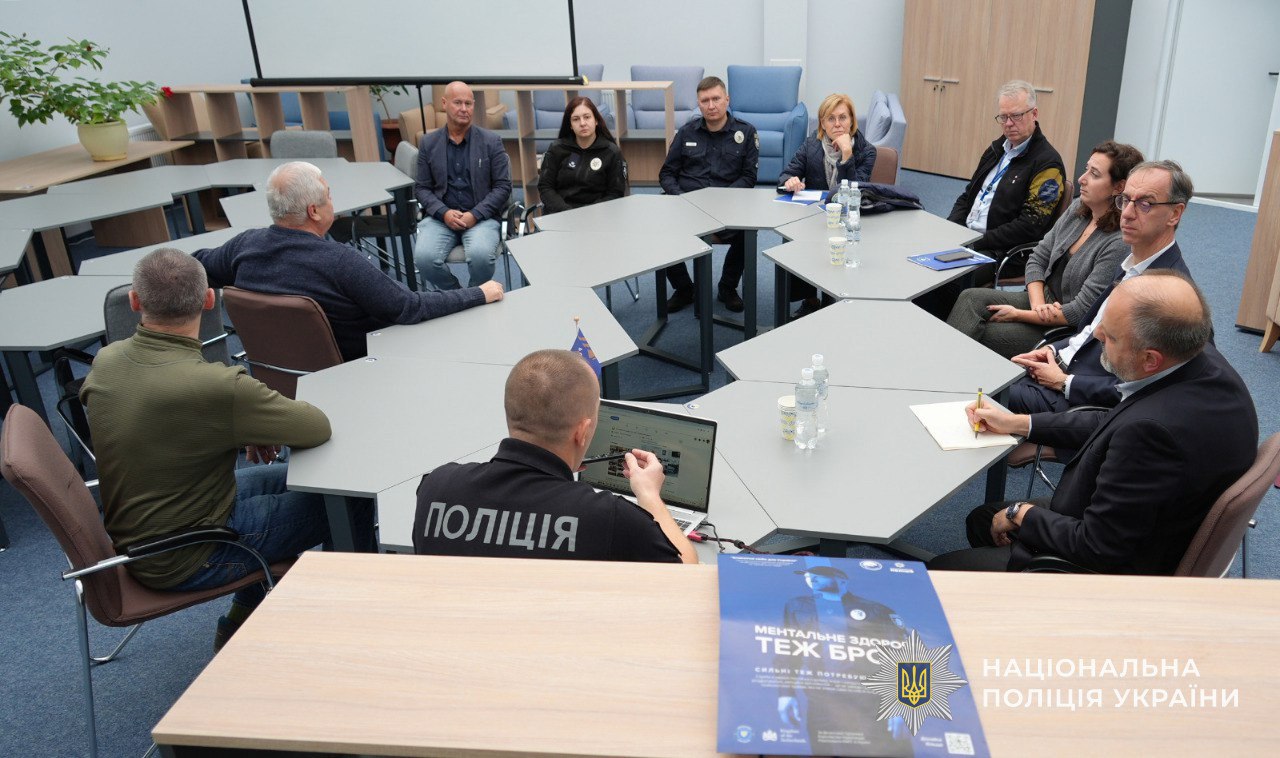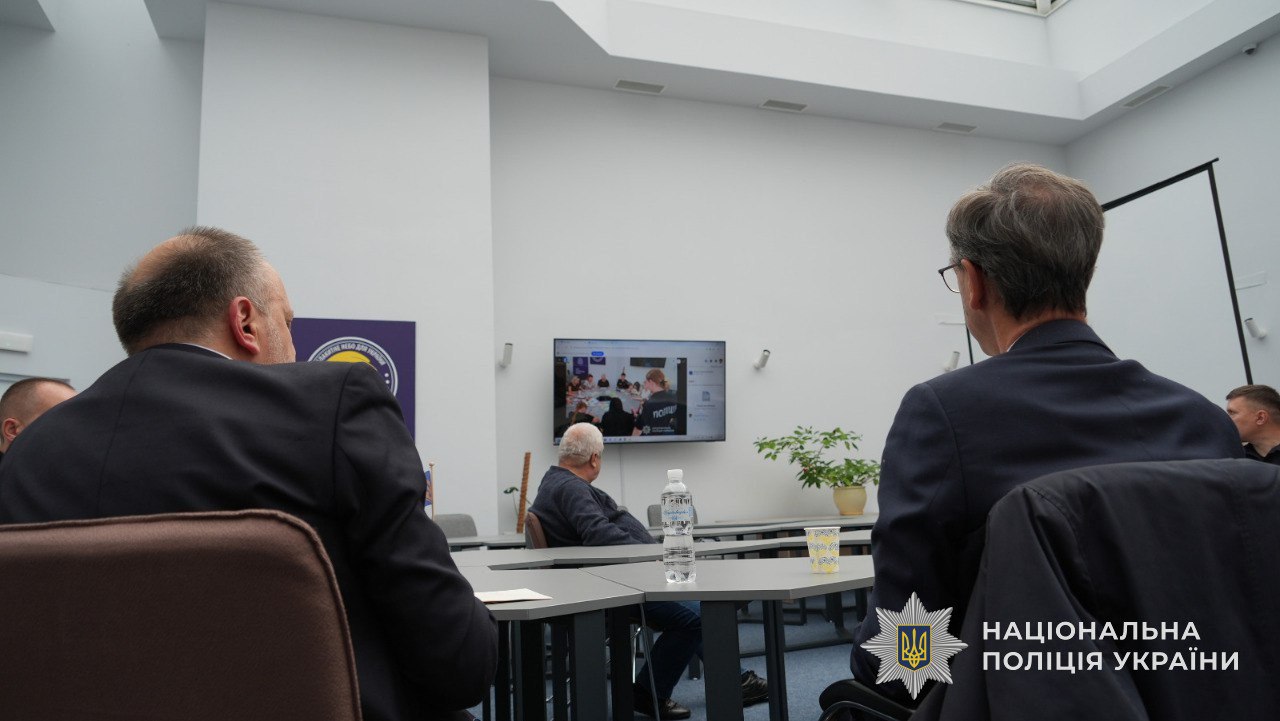EU Civilian Operations Commander visits Ukraine: Supporting Reform, Justice, and Resilience
October 20, 2025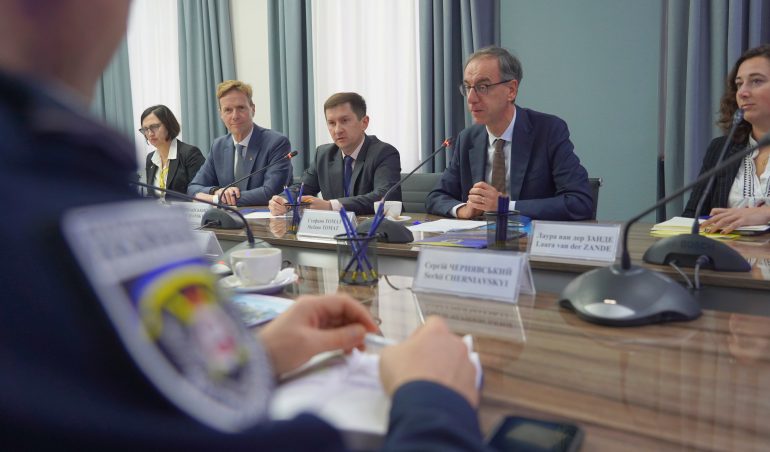
Ukraine remains at heart of the European Union’s agenda. As the country defends its independence and moves closer to EU membership, the EU is seeking the most effective ways to support it – not only on the battlefield but also by rebuilding the justice and security systems that sustain democracy.
Last week, Stefano Tomat, the EU Civilian Operations Commander who oversees all EU civilian missions under the Common Security and Defence Policy (CSDP), visited Kyiv, Dnipro, and Lviv. His mission focused on how EU instruments – including not least the EU Advisory Mission (EUAM) Ukraine – can best respond to wartime challenges while supporting reforms in the civilian security sector, which are key for EU accession.
Reforms That Cannot Wait
Even as the war continues, Ukraine’s reform path towards democratic entrenchment, effective anti-corruption and good governance remains non-negotiable conditions for joining the EU. EUAM’s mandate – to help Ukraine build a reliable, accountable, and trusted civilian security sector – is central to that effort.
In Kyiv, Commander Tomat met Prosecutor General Ruslan Kravchenko and reaffirmed the EU’s commitment to supporting Ukraine in documenting and investigating international crimes committed during Russia’s aggression. He praised the resilience of Ukrainian prosecutors who continue their work despite wartime conditions and emphasised that justice for victims is a shared EU–Ukraine priority.
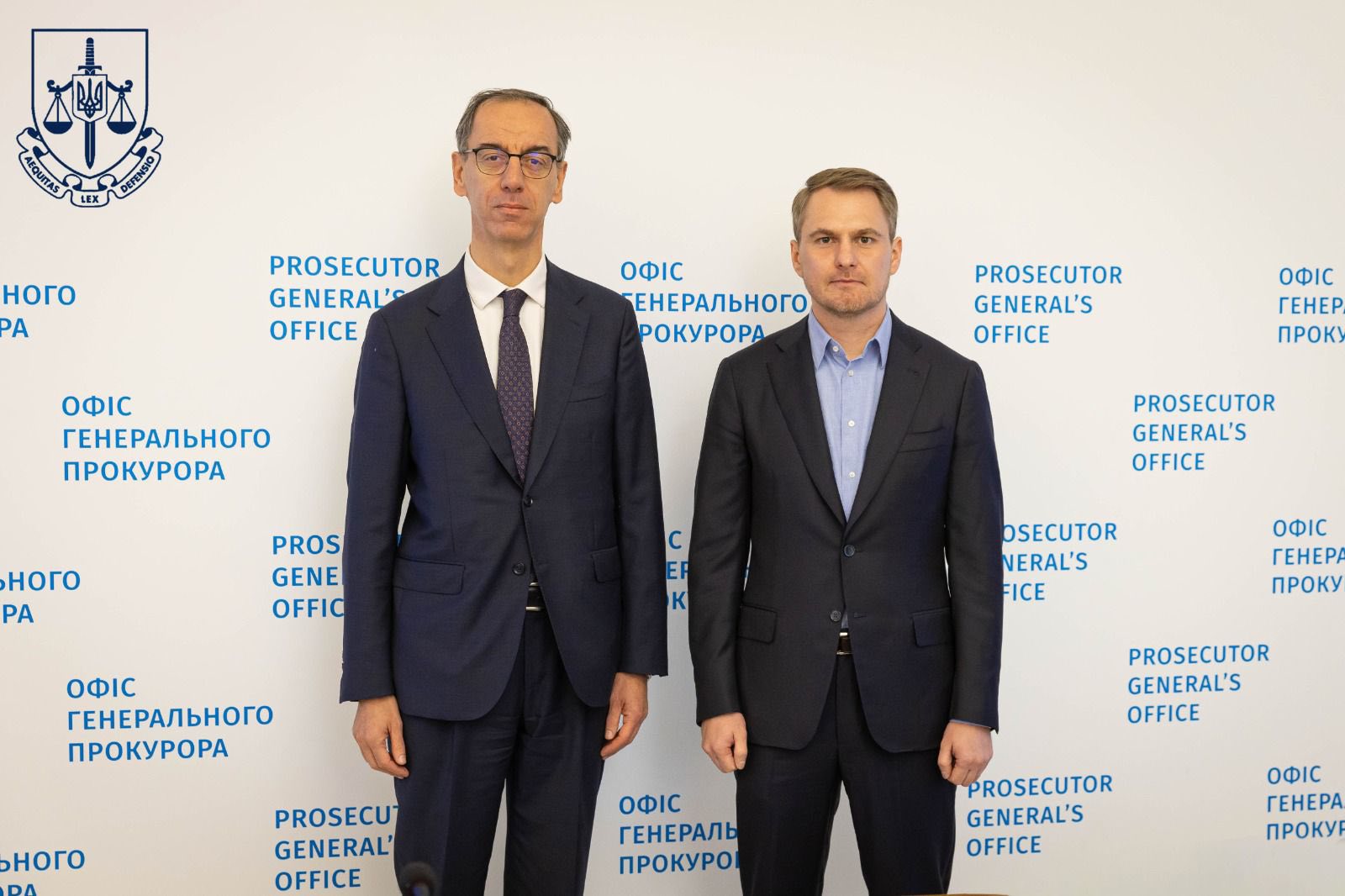
Ruslan Kravchenko thanked the EU for its consistent support since the start of the full-scale invasion and outlined key priorities of his office – prosecuting war crimes, protecting children’s rights, safeguarding investments, and developing a transitional justice system for Ukraine.
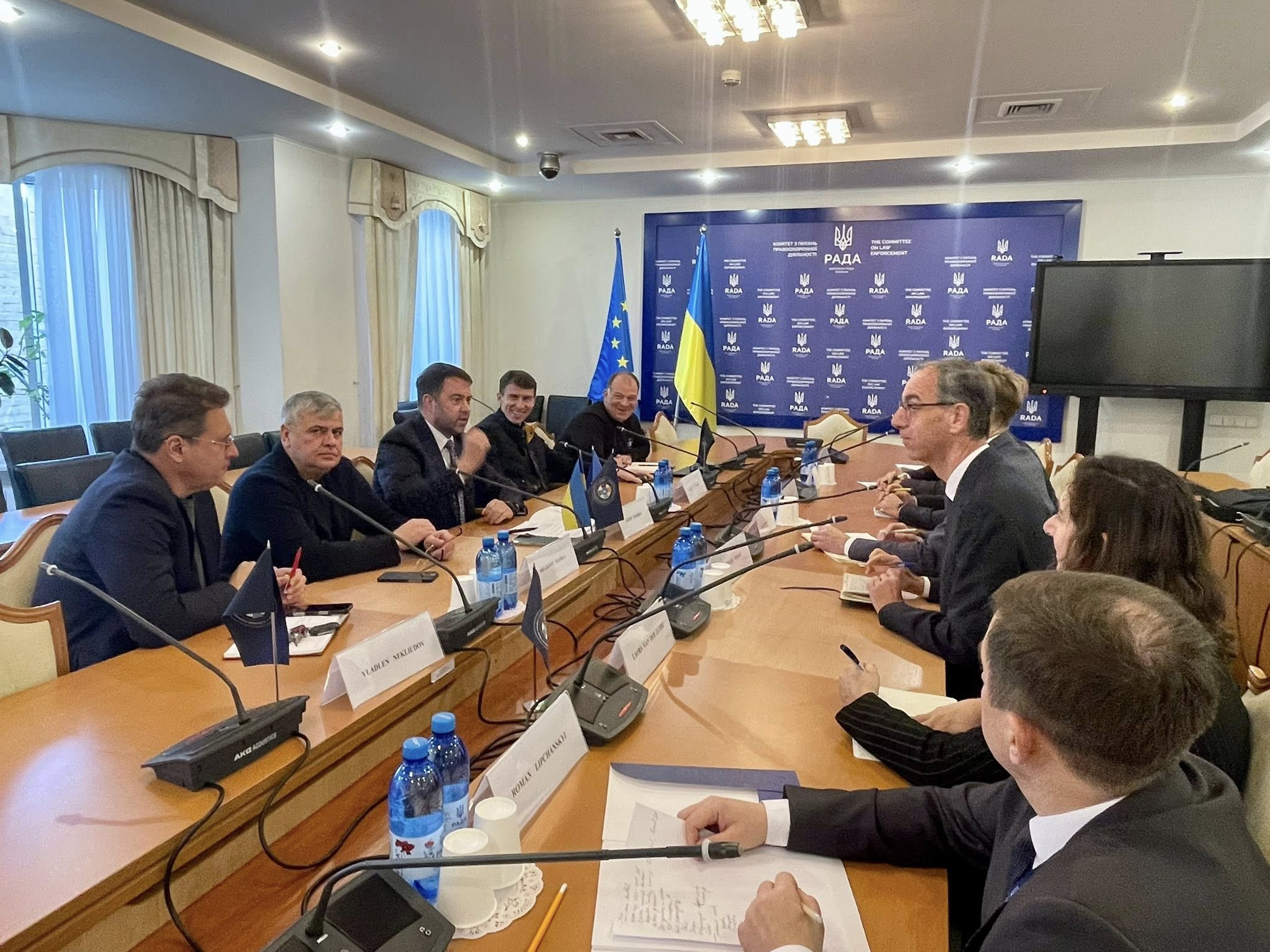
Tomat also met Serhii Ionushas, Chair of the Law Enforcement Committee of the Verkhovna Rada. Together with MPs and EUAM experts, they reviewed the progress of legal reforms that bring Ukrainian laws closer to EU standards and discussed the reintegration of veterans into civilian life.
Support Under Fire
In Dnipro, the war feels closer. The city lives with a quiet tension – an ordinary working day can turn extraordinary in seconds. It was here that Commander Tomat, accompanied by EUAM’s Head of Mission and Mobile Unit, met investigators, prosecutors, and police officers who carry out their duties just behind the front.
At the Dnipropetrovsk Regional Forensic Centre, Stefano Tomat watched experts analyse drone fragments and missile debris – pieces of metal that may later become evidence in court. In another lab, technicians were matching DNA samples to help families identify loved ones lost to the war. “Every sample, every document matters. It carries a real story of loss, of truth, and of future accountability,” one forensic expert told him. “Each one could be a piece of justice in the future.”
During meetings with regional police and prosecutors from Dnipropetrovsk, Donetsk, Luhansk, Kharkiv, and Zaporizhzhia regions, the Commander discussed how EUAM supports law enforcement facing hybrid threats and heavy wartime workloads. He commended their professionalism and stressed that the Mission will continue helping regional authorities and law enforcers protect communities, uphold the rule of law, and maintain essential services in frontline and war-affected areas.
When Education Matters
Reform begins long before officers take their oath – it starts in the classroom. At the National Academy of Internal Affairs and the Kyiv Lyceum of Internal Affairs, EU Civilian Operations Commander Stefano Tomat, together with the EUAM Ukraine team, met cadets who will one day wear the uniform of the National Police and serve a democratic state while carrying the experience of war.
Walking through classrooms and training halls, the Commander saw a system that continues to function under extraordinary conditions. NAIA’s senior leadership briefed the delegation on how education in the Ministry of Internal Affairs system is adapting to wartime challenges. They spoke about modern teaching methods, the EU’s support in updating curricula, and the urgent need to provide psychological and professional reintegration for veterans returning to service.
“Ukraine is not only defending its territorial integrity – it is building the foundations of a just, democratic future. You are the generation that will carry Ukraine forward – not just toward peace, but toward lasting stability, justice, and integration with Europe,” said Stefano Tomat to the future police officers, who dream of serving their country guided by the European values of integrity, fairness, accountability, and human rights.
Integrated Border Management
The last stop for the EU Civilian Operations Commander was Lviv, where the war sometimes feels geographically distant but emotionally close. Here, Stefano Tomat met with representatives of the State Border Guard Service and State Customs Service to discuss EUAM’s work on Integrated Border Management (IBM). He discussed how EUAM’s support helps Ukraine align border procedures with EU and Schengen standards. He highlighted the importance of close cooperation between agencies to prevent smuggling, combat corruption, and maintain secure, well-managed borders.
Where Healing Begins
In Lviv, Stefano Tomat also visited “Blue Haven” – a mental health and resilience centre launched this July by EUAM Ukraine with the National Police of Ukraine and the Government of the Netherlands in Lviv. “Blue Haven” offers the possibility of peer-to-peer mental support for veteran law enforcement officers – one that goes beyond emergency care and focuses on recovery and resilience. It is a place where police officers returning from the front can take a breath, talk openly, and start to heal. Here, they find a safe space to share their experiences, rebuild motivation, and prepare for a return to duty.
During the visit, police psychologists spoke about their work with veterans – helping officers learn to sleep again, reconnect with their families, and return to service with renewed strength.
“It is clear that the number of people who will need help to rehabilitate will grow, and so will the challenges – how to reintegrate those with psychological and physical injuries into normal life. The Blue Haven for Ukraine initiative is a model that can be expanded and replicated, including in other countries. It is an excellent example,” – Stefano Tomat underlined.
The programme will soon expand through mobile teams travelling to frontline areas – bringing help and hope to those who need it most.
The EU’s Integrated Approach
EUAM’s work – from legislative advice in Kyiv to forensic mentoring in Dnipro and mental-health support in Lviv – reflects the EU’s integrated approach: supporting Ukraine’s resilience while advancing structural reforms.
“Ukraine’s strength lies in its people and its institutions,” Stefano Tomat concluded. “Our Mission is to help both endure the war and emerge from it stronger – ready for the European future that Ukraine is fighting for.”


